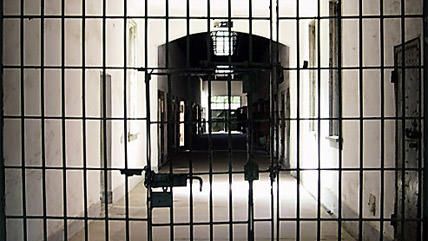States Consider a More Libertarian Approach to Crime
And do so in bipartisan fashion.

SACRAMENTO — Leaders in the nation's two most populous states have waged a rhetorical grudge match over their respective political approaches. In California, dominant Democrats are proud of their efforts to pioneer social and environmental policy. In Texas, majority Republicans boast about their commitment to business development and freedom.
Anyone who has followed the back and forth – hitting a low point last year when Texas Gov. Rick Perry (R) bought radio ads to lure businesses eastward and California Gov. Jerry Brown (D) responded with a crude comment – would have been shocked by an event in the California Capitol on Thursday.
At a budget and fiscal review hearing, liberal Democratic senators praised the work of a conservative Republican who explained what California can learn from Texas in the area of criminal-justice reform. As humorist Dave Barry would say, "I am not making this up."
California has been under federal court order to reduce its overcrowded prisons. It's been more than two years since the state implemented "realignment," which moved less-serious offenders from the state system to county jails. Leaders of both parties are upset by soaring prison costs and recidivism rates. The crisis has led to a newfound openness to look anywhere, even to Texas, for ideas.
While the California system is bursting at its seams, Texas has closed three prisons. Both states have crime rates that are lower than they had been decades ago, but Texas' rate is falling faster than national trends. Crime in California is edging up slightly and its prison population is growing. California pays twice what Texas pays per year to incarcerate an inmate.
"In spite of Texas' well-deserved reputation as this tough-on-crime state, and some of us would like to think perhaps because of it, the lawmakers in Texas … have seen fit to begin to innovate in the area of criminal-justice reform," said former California Assemblyman Chuck DeVore. He is a Republican who now leads policy efforts for the Austin-based Texas Public Policy Foundation, which promotes free-markets.
"These reforms have now saved the state of Texas to date some $3 billion in taxpayer outlays and have saved Texas taxpayers from having to build another 17,000 prison beds," according to DeVore. And it's been done without reducing sentences. In the past, the state had been taking the same approach as most other states – building more prisons and spending lots more money. It decided to change course.
DeVore's foundation spearheads a policy effort known as "Right on Crime," which is designed to move conservatives away from a purely "law and order" approach. Some of its goals: enable criminals to pay restitution to victims and otherwise take responsibility for their actions, evaluate the size of the criminal-justice bureaucracy, preserve family involvement and reserve prison time for crimes that threaten public safety.
Consider that Perry, a conservative who ran for the GOP presidential nomination, recently considered the decriminalization of drugs because "it keeps people from going to prison and destroying their lives." Times are changing.
These "conservative" principles really aren't much different from what many thoughtful "liberals" and "libertarians" advocate. Sen. Mark Leno (D), a self-described San Francisco liberal, encouraged DeVore's foundation to bring its nationwide efforts to California.
"Conservatives need to look at the criminal-justice system with the same eye they look at other aspects of big government," DeVore told me before the hearing, noting that conservatives have too often given the prison system a blank check. DeVore also challenged liberal sacred cows: The prison-guards union has made it tough to rein in costs and California's business-licensing laws make it hard for parolees to get jobs. His research shows that employment is crucial to reducing recidivism, with Texas parolees three times more likely to hold jobs than California parolees.
Both states are more similar than anyone would like to admit, DeVore noted. Despite the stereotypes, both are large, vibrant and diverse states with a vested interest in reducing crime, saving money and creating a more cost-effective and humane criminal-justice system. It's no crime to learn from each other.


Show Comments (26)